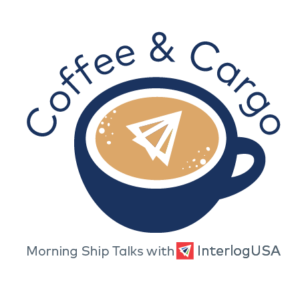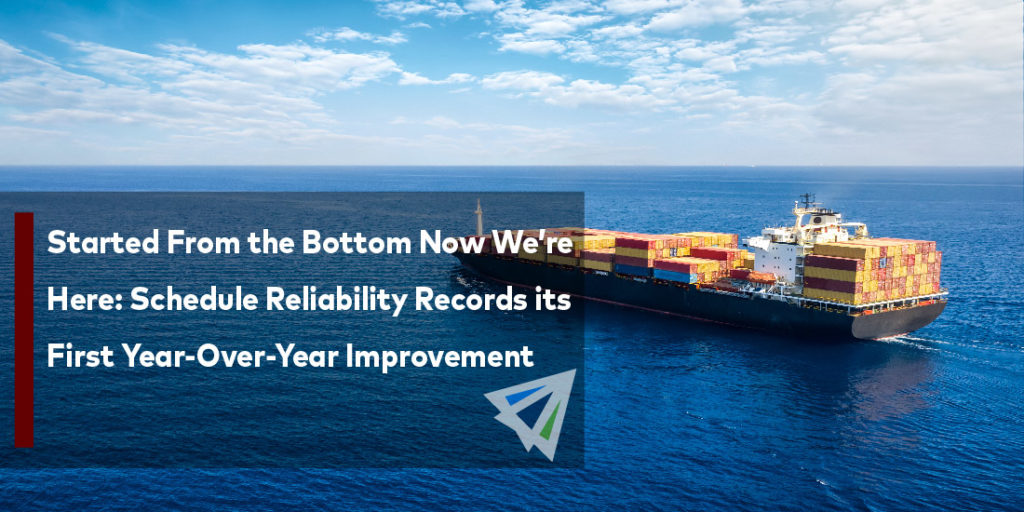Competitive Edge
September 7th, 2022
Stay Current with Interlog’s Weekly Newsletter:


UPDATE: U.S./Canada Ports – Number of Vessels at Anchor as of 09-06-22
- Savannah: 43 Vessels at Anchor (+2)
- Houston: 36 Vessels at Anchor (-3)
- Vancouver: 34 Vessels at Anchor (+4)
- New York/Newark: 22 Vessels at Anchor (+3)
- Los Angeles/Long Beach: 13 Vessels at Anchor (+4)
- Mobile: 13 Vessels at Anchor
- San Francisco/Oakland: 8 Vessels at Anchor (-3)
- Charleston: 1 Vessels at Anchor (0)
Note: This count does not include vessels moored and being unloaded at port docks. Colored numbers in parentheses represents the change from last week over.
Courtesy: MarineTraffic
IMPORT: Asia to North America (TPEB)
Recent Developments:
- Container line services from Asian ports of Shanghai, Ningbo, and Busan are facing delays after coastal areas of eastern China and South Korea were hit by Typhoon Hinnamor over the weekend.
- While rates continue a downward trend, U.S. port congestion and intermodal delays remain heavy players to unreliable scheduling.
- Contract negotiations between the International Longshore and Warehouse Union (ILWU) and Pacific Maritime Association (PMA) remain active. The existing labor contract between the two parties expired July 1.
- A union representing security guards at Los Angeles and Long Beach ports authorized a strike last week. While the union’s contract is separate from the West Coast longshore contract, see our ‘Freight News’ section below on what this means for ongoing negotiations between the ILWU and PMA.
Rates: Spot rates from Asia to the U.S. coasts continue to decrease as demand from shippers has softened (in large part to over-ordering earlier in the year). The traditional cycle of peak season remains delayed as shipper demand and volumes continue trending downwards as well.
Space: Space is generally open at this time.
Capacity: Capacity has tightened in pockets. Shippers continue to divert cargo to the USEC due to fears of disruptions at West Coast ports from ongoing labor talks.
Equipment: Some inland terminals are reaching max capacity with inventory. Intermodal systems remain stressed with congestion and truck and chassis deficits.
- North American chassis manufacturers have ran into production delays in 2022 (for the second consecutive year), reports indicate. This stems from difficulties in sourcing raw components and retaining factory workers.
TIPS:
- Book at least two weeks prior to the ready date.
- For cargo ready now, take advantage of opening space and fallen rates on the spot market.
- Reconsider averting West Coast routings. The “hot spots” for ship congestion and vessel wait times has shifted to the East Coast.
Did peak season for 2022 already happen? Will there be surges in volumes before the end of the year? This is a subject of the September edition of our Interlog Insights Newsletter!
IMPORT: Europe to North America (TAWB)
Recent Developments:
- Northern European hubs remain critically congested. Labor-related tensions continue to pose disruptions to ports in the region.
- In parallel fashion to Felixstowe’s walkouts last month, more than 560 dockworkers at Britain’s Port of Liverpool are planning to strike September 19 to October 3 over an “inadequate” pay raise offer.
- USWC ports have seen alleviated congestion and improvements to vessel waiting times.
- On the USEC, both ports of New York/Newark and Savannah remain having a significant number of backlogged vessels at anchor off their respective shores.
- The Port of Houston, on the U.S. Gulf Coast, is also grappling with vessel congestion.
Rates: Rates remain elevated but are holding steady for the foreseeable future. Higher fuel costs are contributing to rate increases.
Space: Space remains critical to the USEC. However, space has opened for direct routings to the USWC.
Capacity: Capacity for both North Europe and Mediterranean services remain gripped.
Equipment: Equipment at European seaports is not as readily available as it has been for the past few months. Inland terminals in Europe are also still reporting equipment shortages. On the U.S. side, truck and chassis availability remain concerning, especially with the latter.
TIPS:
- Book five or more weeks prior to ready date.
- Strongly consider premium services for no-roll options and improved reliability of cargo.
EXPORT: North America to Asia
Recent Developments:
- For the USEC, port congestion remains an issue for Savannah and New York/Newark.
- Diminished schedule integrity continues to challenge post earliest return dates.
- Vessel arrivals remain smooth for USWC POLs.
Rates: So far, no GRIs announced for September.
Capacity: Available capacity remains fluid for USWC POLs.
Equipment: Truck, container, and chassis availability remains dire and has significantly contributed to congestion of the intermodal system and IPI origins. Standard equipment at ports remains available unless carriers advise otherwise.
TIPS:
- Book four to five weeks prior to the time of departure to secure necessary equipment and vessel space.
Did You Know: This Saturday through Monday is the Mid-Autumn Festival (Mooncake Festival) in China
The Mid-Autumn Festival takes place September 10th through the 12th in China but also celebrated by many other countries like Singapore, Malaysia, and the Philippines.
This festival is the celebration of the rice harvest and many fruits. Ceremonies are held that give thanks for the harvest and to encourage the harvest-giving light to return again in the coming year.
We would like to extend our wishes to our partners, customers, friends and many more that celebrate this notable holiday!
Source: ChinaHighlights
Freight News
A union that is representing security guards at the Port of Los Angeles and Long Beach authorized a strike, last week – no date has been set for said strike.
Here’s what we know:
The security guards have been negotiating a new contract for the past three years, but it’s important to note that this contract is separate from the longshore labor union contract. The Journal of Commerce reports that the hold-up is in regards to compensation.
However, the reason this is noteworthy is if a strike were to occur, the likelihood is significantly high that the dockworkers would honor any security officer picket lines, which would shut down affected terminals – reports say. Now, will or won’t this happen is still yet to be determined.
Update on Port of LA/LB longshore labor union negotiations?
There isn’t too much of an update regarding the strike, but it does seem like some optimism has faded in the past month. The negotiations are still continuing, but a resolution on key issues still remains. Labor Secretary Marty Walsh has stated and informed negotiators that he wants to see a deal done by October at the latest, which is approaching rather quickly.
Port of Oakland sees a drop in container traffic at the port, will they increase their current long-dwelling container surcharge fee?
The Port of Oakland has been experiencing their fair share of struggles in 2022. Specifically, for the month of July, the port recorded almost thirty percent year-over-year decline in cargo – however, one reason for that decline in July, was the shutdown that occurred for a week by protests from independent truck drivers in regards to the new AB5 ruling.
Recently last week, the Port had a visit from the White House port and supply chain envoy, Stephen Lyons. They discussed the challenges the port has been facing and continue discussions on ways to help support solutions.
Additionally, the Port of Oakland has had a surcharge fee on long-dwelling containers since last December. But now, the Port and its largest marine terminal are unsure whether increasing the surcharge amount is the right approach or not. The “extended dwell-time fee” has been occurring on the eighth day that a laden import box has been sitting on the terminal. The fee starts at $50 per day, topping out at $150 per day – the Journal of Commerce reported.
As of now, it seems unlikely that the surcharge will increase – as Oakland International Container Terminal (OICT), which is operated by SSA Marine, would have final say on any revisions to the fee. The President of SSA Containers has stated they need to make sure to be fair with BCO’s (beneficial cargo owners) and “if they had anywhere to bring the import containers, they would,” he told the JOC.
Sign up for this month's webinar!

Make sure you sign up for our next webinar that is taking place on Wednesday September 21st where we will be discussing current and exciting topics in the freight industry.
If you have never joined our Coffee and Cargo webinar click the "Watch now" button to view our most recent webinar.
We look forward to seeing you there!
Sign up for our
industry answers
Our team works to provide valuable, unique, and relevant content to assist you in finding solutions. Sign up now.

